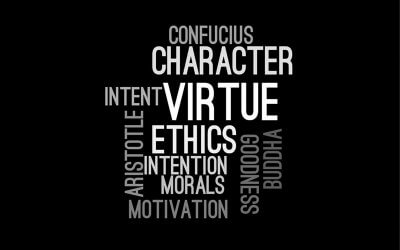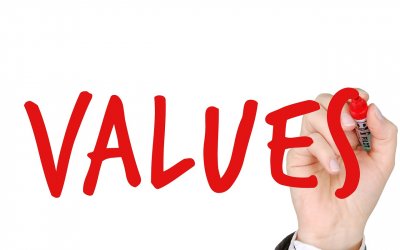We all know the flight attendant’s instructions to “put your oxygen mask on first,” before helping others. Why is this an essential rule for ensuring survival? Because if you run out of oxygen yourself, you can’t help anyone else with their oxygen mask.
In a corporate environment, I consider this to ensure that the business model and processes are working before embarking on a new venture, product, or market. With COVID, I see several CEOs, moving their organizations in new directions without the company having its core culture, business model, and processes working. With COVID, all CEOs are now what Ben Horowitz referred to as “Wartime CEOs.” To understand the difference, read Horowitz’s Peacetime CEO/Wartime CEO. However, as a wartime CEO, you need a robust organization framework to provide the agility to win.
Without a robust framework, it will be difficult to:
- know what is driving any change in performance;
- push decision making down the chain of command;
- be agile in responding to market conditions; and
- make informed decisions.
Many companies have problems with their culture, business model, processes, or just the wrong employees. As I have said before, COVID is ripping back the curtain and exposing these weaknesses. Business leaders don’t have the luxury of ignoring them anymore.
Many CEOs I know have avoided addressing the problems within their organizations for years as the growing economy helped paper over them, and I think they hoped the issues would right themselves with time. This failing to deal with the difficult choices is a failure by these leaders because dealing with hard decisions is why they get paid the big bucks. As Ben Horowitz so aptly put it, CEOs make decisions that not everyone agrees with, because if everyone agreed, then they wouldn’t need the CEO. Now is the time for many business leaders to face those hard decisions and do what is right for the organization.
Examples I see are that plague some companies are:
- Wrong people in the jobs they have. They need to be moved
- No core values or corporate culture. During COVID there are more crises because “the employees are not stepping up.” This will get worse.
- Bad financial reporting. You can’t change direction and know the results if your financials are 6+ months late or usually wrong.
- No idea about the underlying product or service costs. Thus focusing on nonprofitable items and clients during a cash crunch.
- Headquarters in another country has to approve all online content and publish the website and online stores; however, they are distracted and don’t understand the U.S. market. In this instance, there is no agility, which is essential.
If you are struggling with this, I would recommend joining a Peer Group like Vistage and presenting the issue to your Peers. When I was a Vistage member, I found the advice was what I deep down usually knew was needed, but hearing it from my Peers provided me no choice but to commit to something I was avoiding. Also, I would have to do it, as I could not face them again, having committed to doing it, but then backing out. As I tell Vistage prospects, “there is no public flogging in Vistage, but monthly humiliation in front of your peers may be worse!”
While COVID is creating chaos in many companies, business leaders need to ensure they have repaired their underlying problems first before trying to adapt. As the old French proverb says, “A stitch in time saves nine.”
Copyright (c) 2020, Marc A. Borrelli
Recent Posts
The “Flaw of Averages” Causes Havoc for Businesses
Discover how understanding the limitations of averages and embracing probabilistic thinking can improve decision-making and risk management in business.
What is Your Strategy, In a Sentence?
If you are banking on the vaccine returning us all to “normal” quite quickly, in the famous words of Dr. Akande, “Hope is not a strategy.” Your organization should be preparing a well-defined strategy for 2021 and beyond. Once you have this strategy, the ultimate question: can you clearly articulate it in one sentence? Distilling your strategy into a single sentence is a powerful tool, both for your legacy and your team effectiveness. Not sure where to start? I offer a plug-in formula to set up your strategy sentence.
Character Matters
“It’s easier to hold to your principles 100% of the time than it is to hold to them 98% of the time.” — Clayton Christiansen. I have often written about the importance of a company’s Core Values. That’s because no matter what words you may have chosen as values, your organization’s Core Values are on display in how leadership and employees actually behave. As I’ve said before, how you have acted in the last twelve months will define your career for the next decade. Your character, and your company’s character, matters.
New Year’s Resolutions, Once More Unto the Breach
The holidays have been even quieter than normal, which has given me plenty of time to reflect on my New Year’s resolutions. Looking at 2021, I decided to use a completely new approach to lay out my goals. The result of my new approach? A highly-detailed, accountable, actually achievable plan for the next year (I think). Wondering what this process looks like?
To Vaccinate or Not to Vaccinate, that is the Question
What do your employees, peers, and leadership team think of the COVID-19 vaccine? Will you require the vaccine, or will you let employees make individual decisions? As a leader, you need to steer the discussion about vaccines in your organization with your Core Values in mind. No matter what strategy your organization takes, the most important factor is going to be how you communicate your decision.
3 Ways You Could be Undermining Your Core Values
Can you answer “Why does your organization exist? What are your core values?” Great. Now, would your latest entry-level employee give a similar answer? How about someone who has been at your company for a year? Your core values give your organization a guiding mission. Many organizations pay this idea lip service, but their true commitment to their core values was tested this year. As we close out 2020, there’s no better time to examine how your organization is approaching your core values.
Are You Prepared for 2021 With Enough Cash?
Companies don’t go bankrupt because they lose money; rather, they run out of cash. Where are we, heading into 2021? First, you can expect your cash to get tighter as we weather the current economic slowdown. Then, with a vaccine on the horizon, you will need to be positioned for growth. If you don’t have the cash you need, have you looked at how you can generate the cash internally? More on how to improve your cash conversion cycle…
Tony Hsieh, a Corporate Culture Icon, RIP
In his work as Zappos CEO and elsewhere, Tony Hsieh believed, and proved, that culture is the most important thing in an organization. According to Hsieh, if you get the culture right, the rest will take of itself. How did Zappos do it? You can take a look at everything from the company’s interview questions, to “The Offer” to leave a position as a new hire. Hsieh believed that a company’s brand is just a reflection of the culture, and his legacy is felt across so many industries.
CEO, Try Thy Hiring System
How does your company hire? I’ve seen the good, the bad, and the surprisingly ugly hiring processes in my career. From the HR email mix-ups to the interviewer watching the World Series while I responded to his questions, I’ve learned that you can tell a lot about an organization simply by examining the hiring experience. Are you chasing away the kind of people you need at your company?
What is Leadership?
What is it, exactly, that great leaders do? There are plenty of overused adages about “leadership” in business. It’s worth examining the tropes around leadership, plus the traits of the leaders who actually leave a mark. Great leaders are forged through adversity, and they leave a legacy. What does that look like in your organization?











